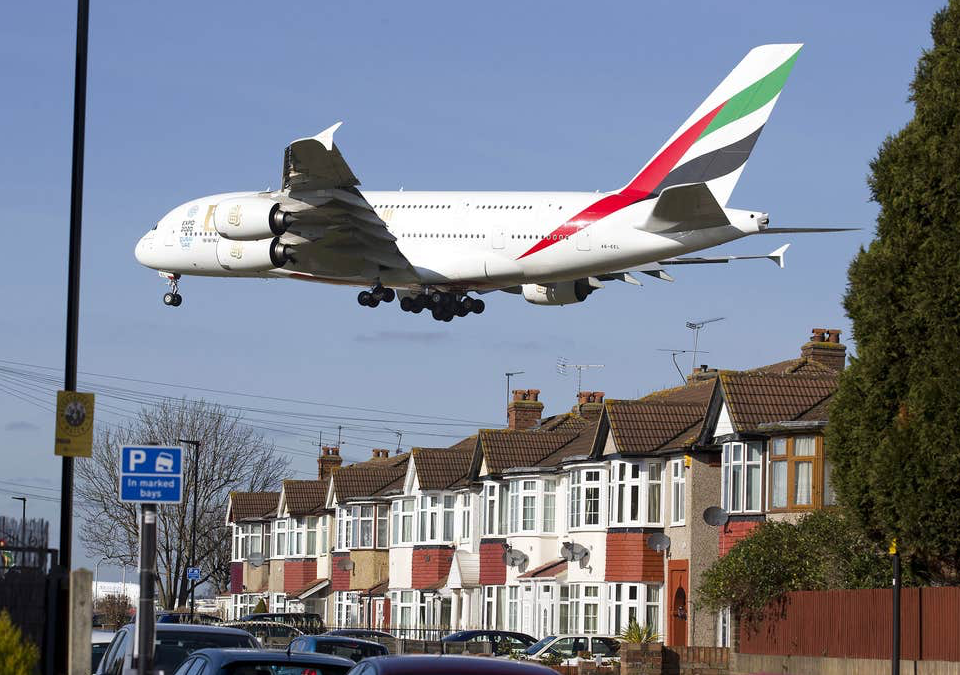Noise pollution - it's everywhere, so how can you combat it?
We're all familiar with air pollution but noise pollution is just as ubiquitous and can have a serious impact on health and wellbeing. So can we mitigate its worst effects?

People living under flight paths suffer from noise pollution and many feel their lives are blighted by jet engines. Selling up can be hard if you living near an airport because the noise and the traffic are offputting to potential buyers
What Is noise pollution?
Noise pollution (or sound pollution/environmental noise) stands for the propagation of harmful amounts of noise that have a negative impact on humans and animals alike. In simpler terms it means excessive noise - and that's something millions of Brits have to put up with.
Noise pollution is endemic in urban environments - traffic noise, the thunderous trains on the London Underground, planes coming into land, music blaring out of other people's earphones, emergency service sirens, loud neighbours, loud music in cars, shops, pubs and clubs, huge tellies with the volume turned up... it's actually quite hard to find a moment's silence in the city. So it's perhaps not surprising that escaping noise pollution is a reason people cite for moving out to the country as, to coin a phrase, all too much white noise can really do yer 'ead in!
Patrick West at Amazing Moves house removal company says noise pollution is one of the top reasons families give for moving out of London to smaller, quieter towns in the UK. With growing awareness of the need to maintain good mental as well as physical health, it makes sense to seek out the sound of silence. Living in constant noise can contribute to cardiovascular diseases, increase levels of stress and, of course, affect your hearing. Noise also unsettles pets and can cause them to suffer permanent hearing loss. But if moving house to the middle of nowhere isn't an option, there are things you can do to bring the noise levels down.
How to reduce noise pollution
If you're a renter, try to do some research before committing to taking on a lease. VIsit the property you're thinking of moving to at different times of the day to see what the noise levels are like, and hover about outside in the evening (without looking too shifty...) to see if other people in the bullding are nice and quiet or shouty and raucous.
Earplugs
Don't laugh.. they're a simple solution that not enough people have tried. Earplugs can be a true lifesaver if traffice noise or noisy neighbours keep you awake at night. Wax earplugs (around £4 a pack) are more effective than plastic sponge ones. In the daytime, wear noise cancelling headphones when noise becomes oppressive.
Windows
Close the windows if it's noisy outside. Double glazed windows are good at blocking sound and triple glazed windows are even better, so if you can afford to invest in windows, well, it'll be money well spent.
Headphones
Noise cancelling headphones are a great investment if you're driven mad by the sound that seeps out of your fellow commuters' earpods during your daily commute to work.
Furniture
If you have wall that divides your room from your neighbours, you can minimise the sound that comes through by putting wardrobes or shelving against the wall, as they'll absorb some sound. Soft furnishings and upholstered furniture will also absorb sound. Also think about putting some sound absorbing panels on your walls. Makers include Woven Image, which uses recycled plastic to manufacture its panels, and Swedish brand Baux, which uses waste wood. Both make effective, eco friendly products.